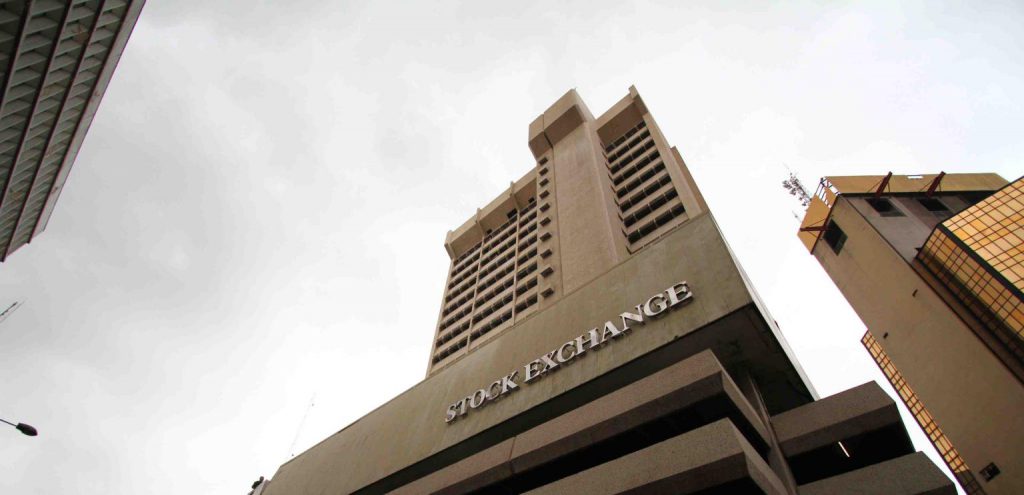
Specifically, the market capitalisation of listed equities, which opened the month of May at N20.830 trillion, depreciated by N720 trillion to close at N20.034 trillion as of May 31, 2021. The All-share index equally declined by 1,363.9 points or 3.5 per cent from 39,801.78 to 38,4437.88 points.
The depreciation in market capitalisation value is despite impressive earnings and dividend announcements from listed companies.
Latest data from the Nigerian Exchange Limited (NGX) showed that foreign investors withdrew N30.79 billion in January, N39.05 billion in February and N20.28 billion in March 2021, while domestic investors pulled out N86.35 billion in January, N69.28 billion in February and N93.31 billion during the same period
The outflow of capital has led to concerns about the impact on the economy, as operators predict the precarious state of the stock market could worsen if factors impeding the nation’s economic growth were not tackled soon.
Operators said that given the increasing level of insecurity, kidnapping, recurrent farmers-herders clashes, unemployment, weak naira and GDP growth, rising inflation and dwindling revenue, the government has to evolve new strategies to stop investment outflows. Additionally, the global and domestic economy has been grappling with the Coronavirus pandemic.
The seemingly improved performance and buying interest in financial services stocks, consumer and industrial goods of the NSE failed to push the market indices as sell-offs in large company shares dragged the key performance indices down.
Already, Pension Fund Administrators (PFAs) and other investment companies are pulling their funds from the stock market to the fixed income market to ensure guaranteed investment return and avoid erosion of capital.
Vice President, Highcap Securities, Imafidon Adonri said the decline in May 2021 is an indication that investors’ confidence in equities during the month.
“Equities’ rebound in April was propelled by impressive full-year results, which surpassed investors’ expectations. However, after that development, the interest rate started to rise in primary market for debt, which mopped financial assets away from equities.
“There was also no extraordinary price sensitive information to drive equities in May which the market had not already reacted to in April. The heightened state of insecurity in May also adversely affected investors’ confidence. “
He said June is not expected to be different from May because the second-quarter results will come in July, unless propelled by yet unknown price-sensitive developments.
“However, from the perspective of the economy, further growth of GDP and decline in Inflation can enhance investors confidence, enabling them to take on more risk. Current forecast favours the growth of equities this year due to improving fundamentals of the economy.”
He urged the government to re-strategise and address current macroeconomic concerns, promote issues of national development, tackle prevailing stock market volatility, restores the market to sustainable rebound.
Publicity Secretary of Independence Shareholders Association, Moses Igbrude said the downward trend in the stock market is a result of the current state of insecurity in Nigeria.
He said: “Investors prefer where their funds and investments are safe. There are other social and economic challenges that are affecting the market. The Federal Government should address these issues to reverse this ugly trend.”
At the re-opening of transactions for the month of June, the equities market closed on a downturn, occasioned by sell-pressure in most blue-chip stocks, causing the All-Share Index (ASI) to decline by 0.06 per cent.
Specifically, the market capitalisation of listed equities decreased by N12 billion to N20.022 trillion from N20.034 trillion recorded on Monday. The ASI also depreciated by 23.51 points or 0.06 per cent to 38414.37 points from 38437.88.
However, at the closed of trading yesterday, the stock market appreciated by N33 billion. Market capitalisation increased by 0.16 per cent to N20.055 trillion from N20.022 trillion reported on Tuesday. The All Share Index also appreciated by 68.15 basis points to 38482.52 points from 38414.37 points traded the previous day.
Investors traded 156.905 million shares valued at N1.329 billion in 3273 deals against 274.852 million shares cost N2.632 billion in 4159 deals.
The NGX trading result showed that UPL led gainers chart, adding 9.38 per cent to close at N1.40 kobo while Regal Insurance followed with a gain of 5.00 per cent to close at N0.21 kobo.
Chi Plc also gained 4.17 per cent to N0.75 kobo, Royal Express increased by 3.90 per cent to N0.80 per cent.
On the contrary, CWG topped the losers’ chart, dropping by 9.66 per cent to close at N1.87 kobo. Ikeja Hotel trailed with a loss of 9.09 kobo to close at N1.0 kobo. Nascon dipped by 8.78 per cent to N13.50 kobo. Johnholt dipped by 8.62 per cent to N0.53 kobo. Linkage Assurance declined by 8.33 per cent to close at N0.55 kobo. Japaul Gold was the most active stock in volume terms, exchanging 19.949 million shares valued at N11.405 million.
FBNHoldings followed with an account of 12.224 million shares cost N87.891 million, Transnational Corporation of Nigeria traded 11.841 million shares cost N10.445 million, UACN traded 10.806 million shares valued at N118.873 million, Fidelity Bank sold a total of 9.836 million shares cost N21.851 million.



